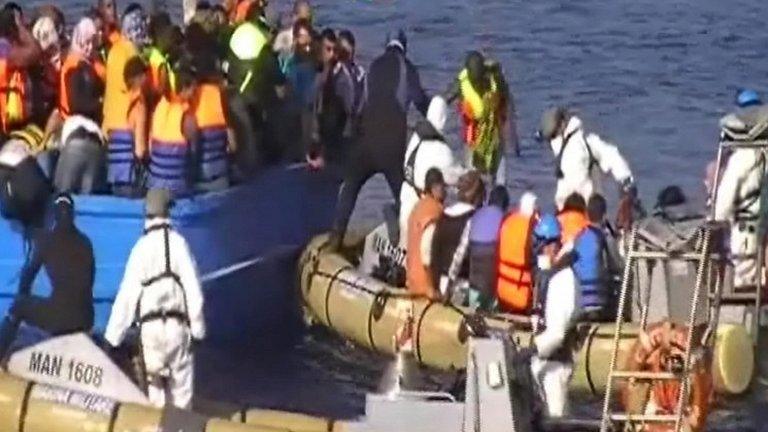David Cameron: We need to stop migrants 'breaking in'
- Published
David Cameron says he does not regret his "swarm" comment in relation to migrants
The government is aiming to make sure illegal immigrants cannot "break into Britain", PM David Cameron has said.
Mr Cameron said the UK was taking its fair share of asylum seekers but said he wanted to stop people getting in "without permission".
He defended his use of the word "swarm" to describe migrants crossing the Mediterranean to reach Europe.
But Labour's Yvette Cooper criticised Mr Cameron for "ramping up the rhetoric".
It comes as more than 40 migrants died in an overcrowded boat in the Mediterranean. Officials now estimate that 250,000 people may have crossed by boat into Europe this year.
Marking 100 days since his election victory, Mr Cameron discussed a range of subjects, including July's Budget, and pledged to extend academy schools.
In an interview with BBC News, he said:
Every school in England should convert to academy status.
He was "immensely frustrated" about delays in publishing the long-running Chilcot Inquiry into the Iraq war.
He stood by comments he made about not serving a third term as PM, saying: "Ten years is a good, long time to be prime minister".
Welfare cuts introduced by Chancellor George Osborne in the Budget would "make work pay".
The British press had behaved "very well" in not printing paparazzi photographs of Prince George.
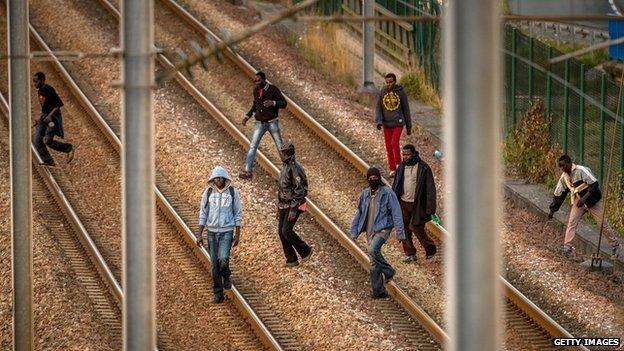
The UK's welfare system should act "as less of a draw for migrants", Mr Cameron said
Asked about preventing illegal migrants getting into the UK, Mr Cameron said: "A lot of people coming to Europe are coming in search of a better life.
"They are economic migrants and they want to enter Britain illegally and the British people and I want to make sure our borders are secure and you can't break into Britain without permission."
'Moral approach'
He also defended his recent use of the word "swarm" when describing migrants crossing the Mediterranean.
The Refugee Council, which works with refugees in the UK, had described his comments as "irresponsible" and "dehumanising".
But, speaking on BBC Radio 4's Today programme, the prime minister said he believed voters would understand what he was trying to say.
"I don't think it does dehumanise people. Look at what Britain's response has been.
"I made sure that we sent the Royal Navy flagship to the Mediterranean which has rescued thousands of people, saved thousands of lives," he said.
But Ms Cooper, the shadow home secretary and a Labour leadership contender, told the BBC his language was "damaging and divisive".
"There is a humanitarian crisis going on because of what happened in Syria and because of refugees," she said.
She said that instead of "ramping up the rhetoric", Mr Cameron should have practical plans to work with the French to carry out a proper assessment of the migrants.
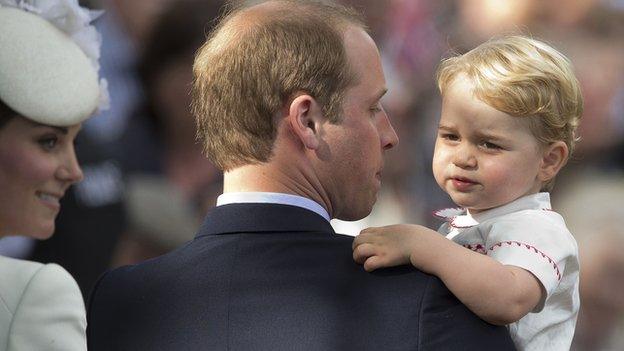
Mr Cameron said foreign publications should not use paparazzi pictures of Prince George
Elsewhere, Mr Cameron set out his "vision for our schooling system", saying every school in England should become an academy.
The PM said the schools improved standards and power should be in the hands of teachers, not bureaucrats.
"That is why in the first 100 days we have brought forward legislation to transform all failing schools into academies, and for the first time taken the power to convert coasting schools into academies too," he said.
Asked about complaints by the Duke and Duchess of Cambridge that paparazzi photographers were going to "extreme lengths" to take photos of Prince George, he said he had "every sympathy" with the royal couple.
But he defended the stance of most British publications not to print the photos.
"What we need to do now is persuade some of these foreign publications not to use these pictures," he said.
He said he still planned not to serve a third term as prime minister, saying: "I stand absolutely by what I said."
"One hundred days in, I think people can see we are delivering the things we said we would - a tax-free minimum wage, more apprenticeships, capping welfare, making work pay. I think it's been a strong start."
- Published15 August 2015
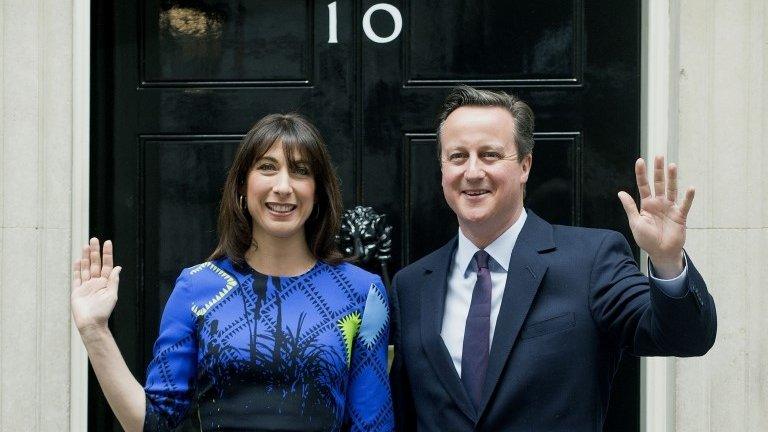
- Published15 August 2015
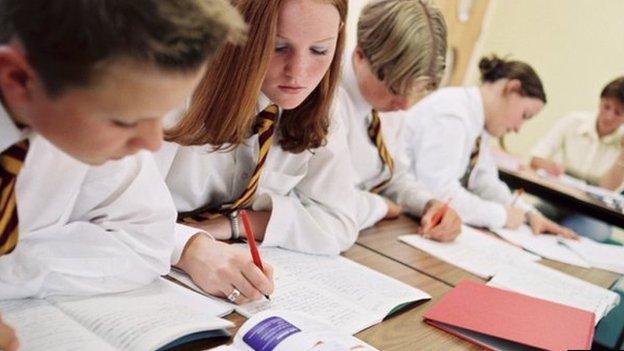
- Published15 August 2015
